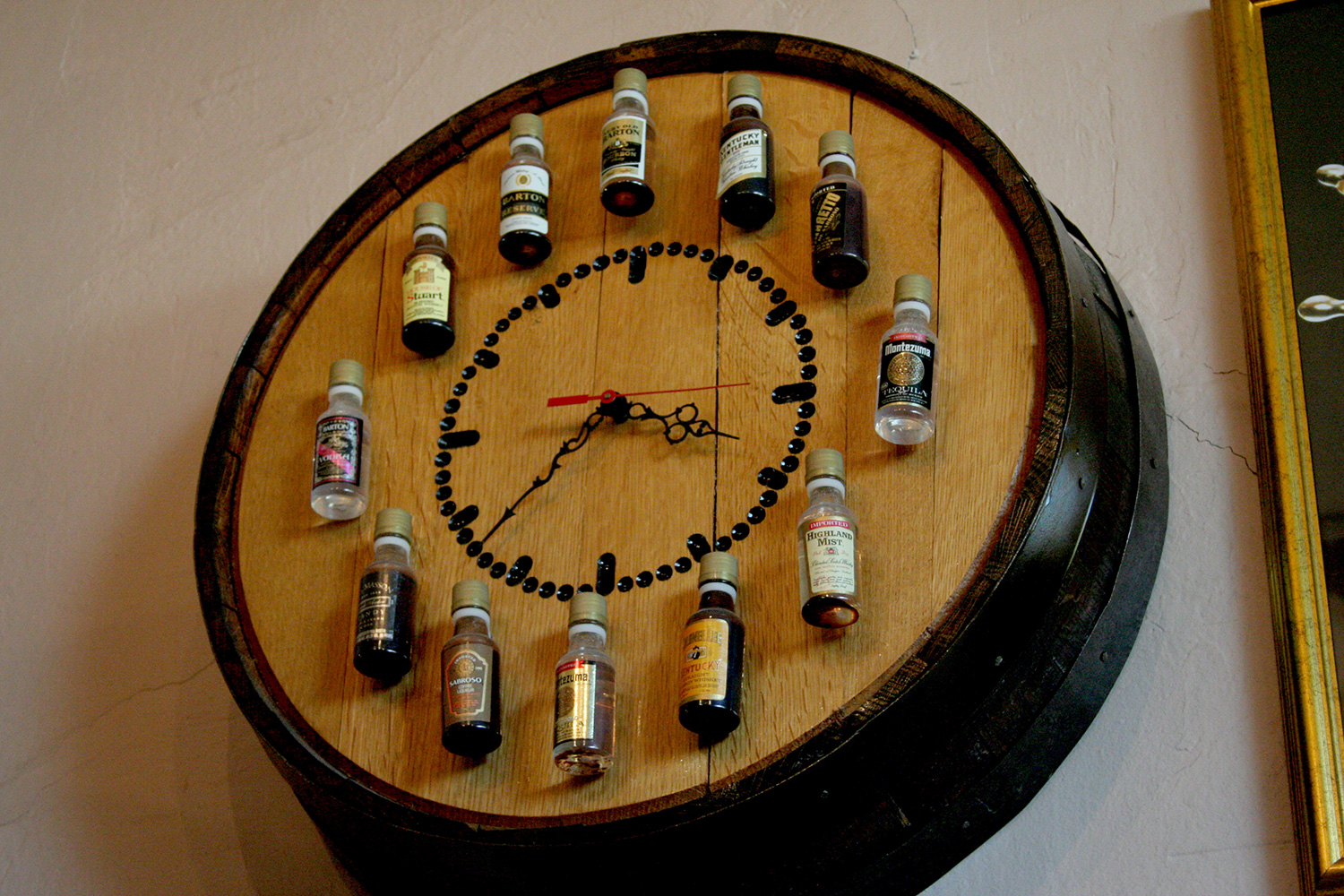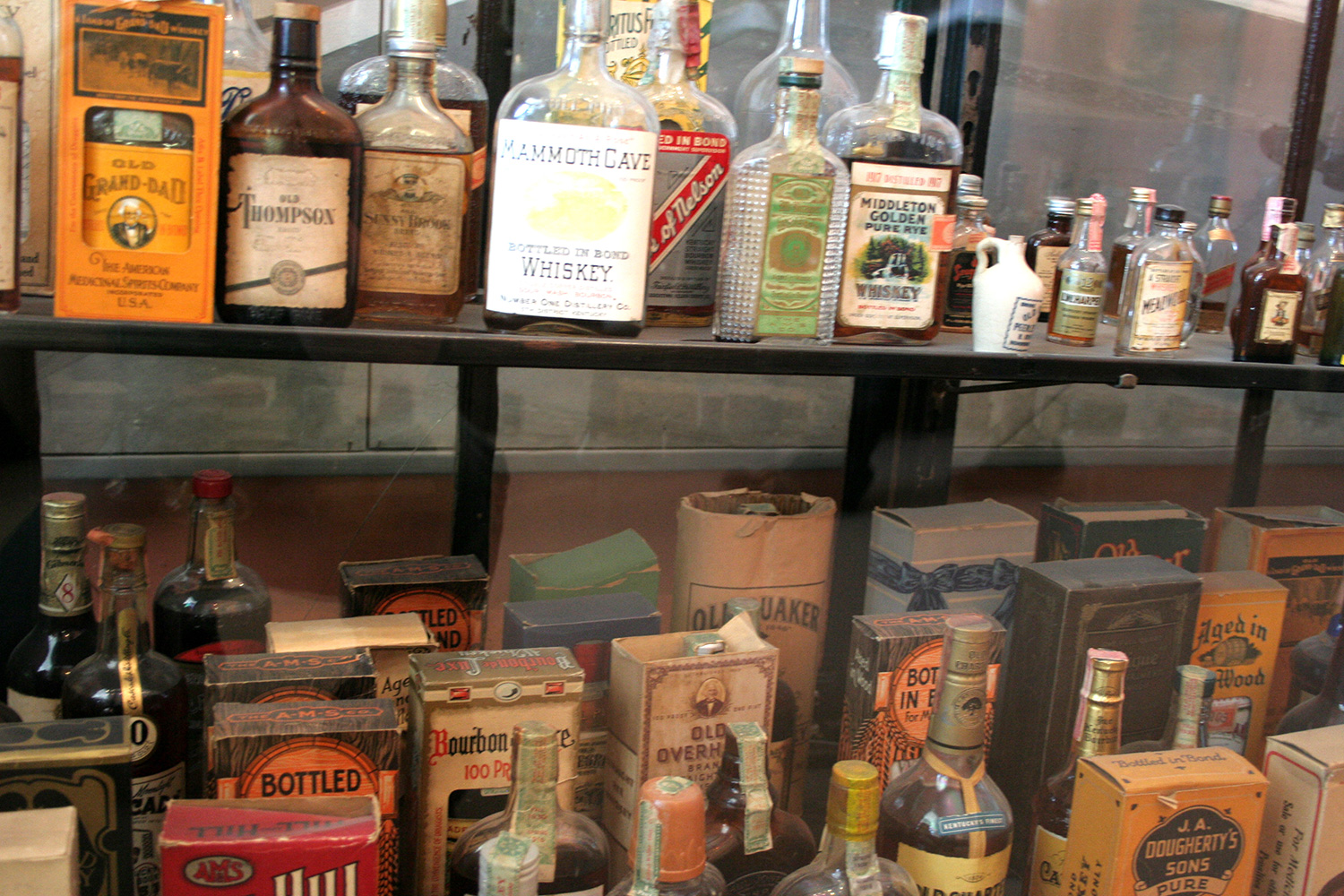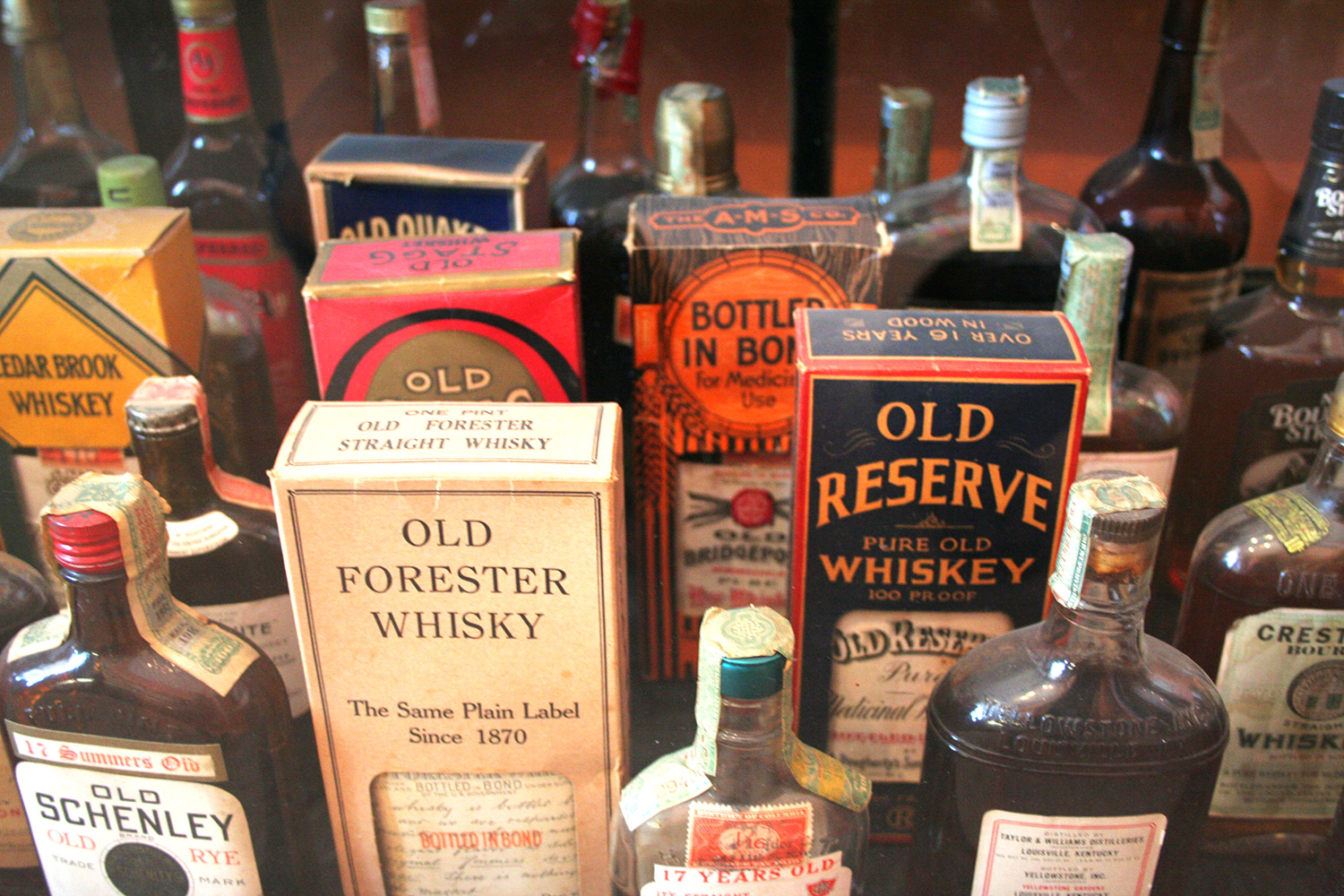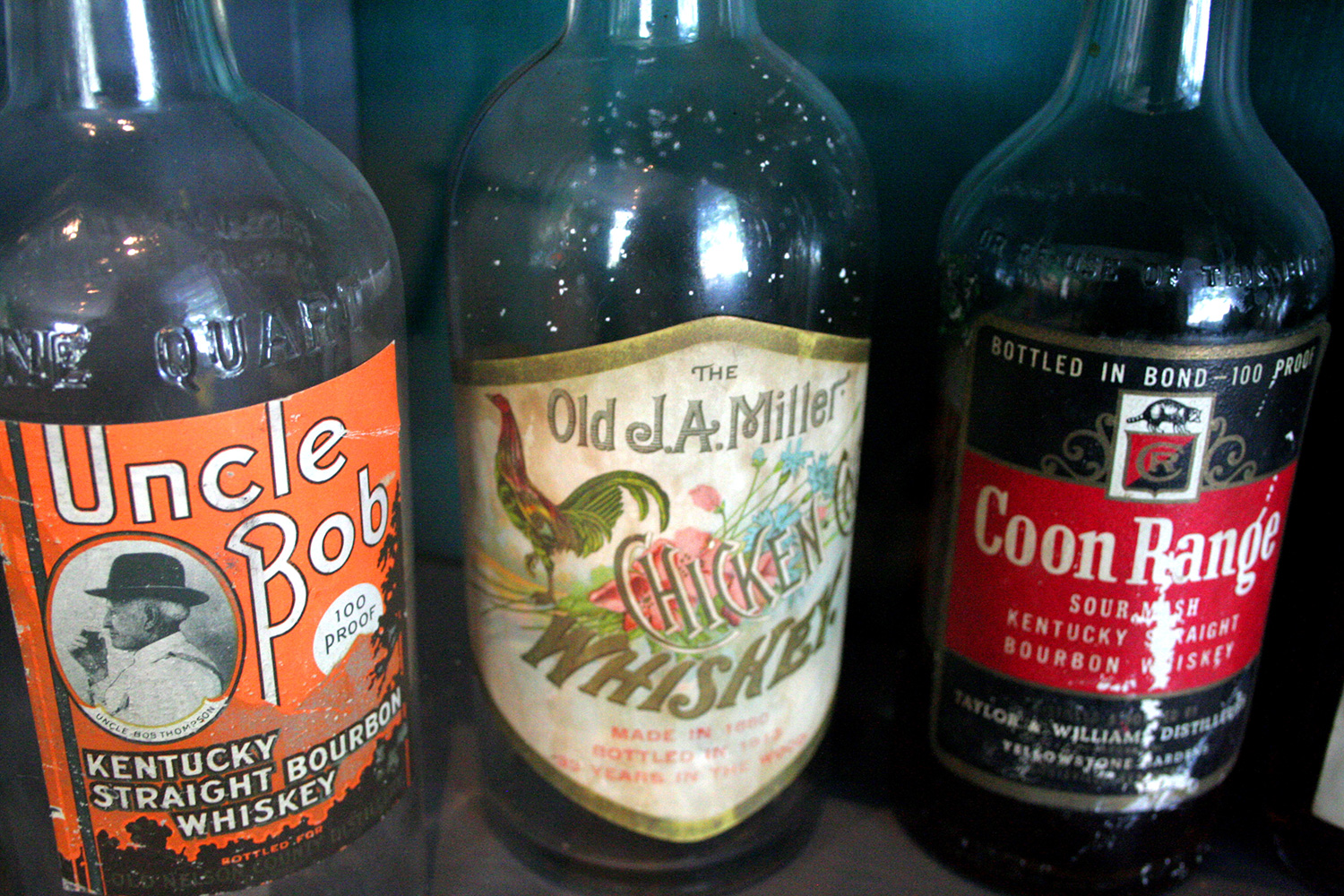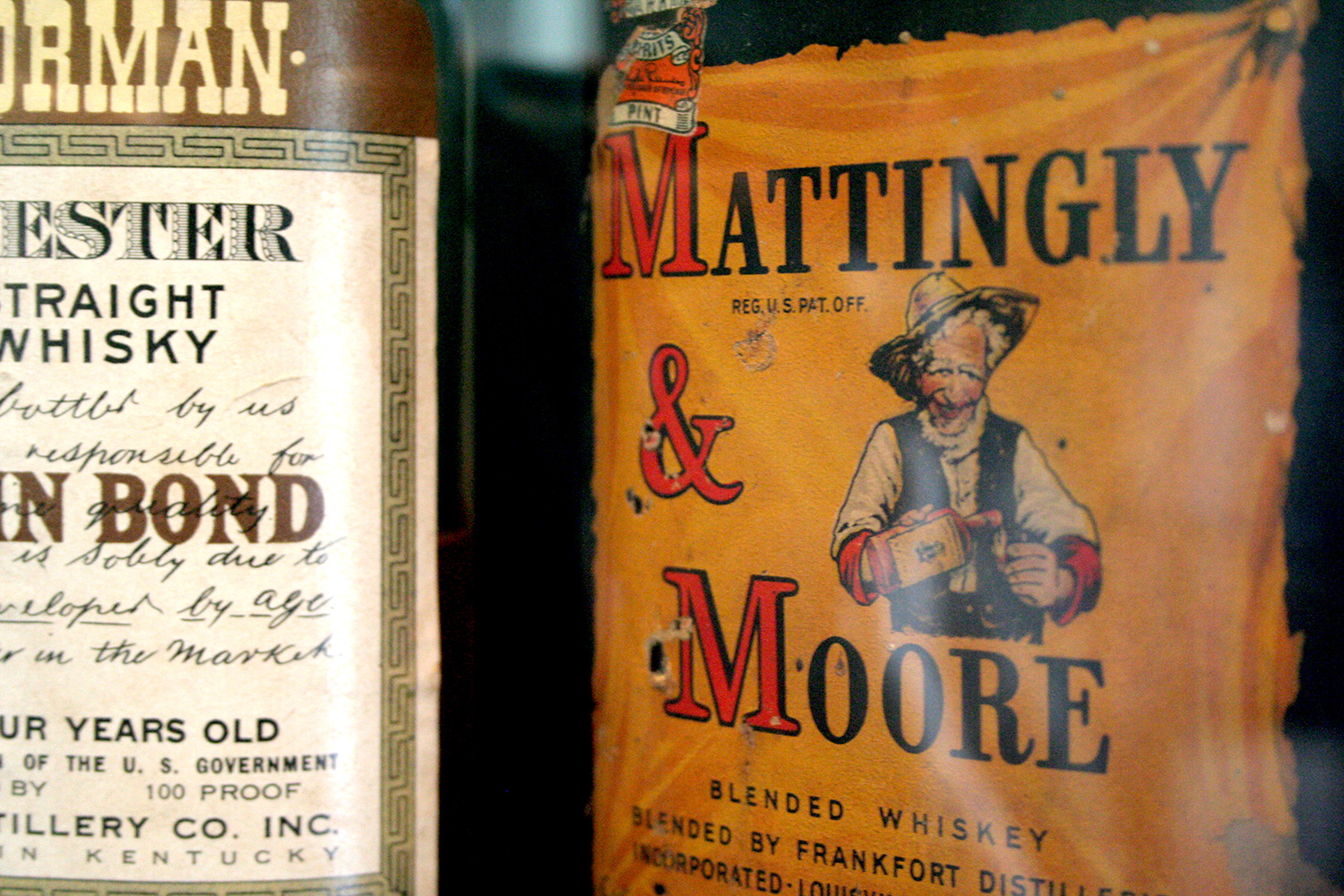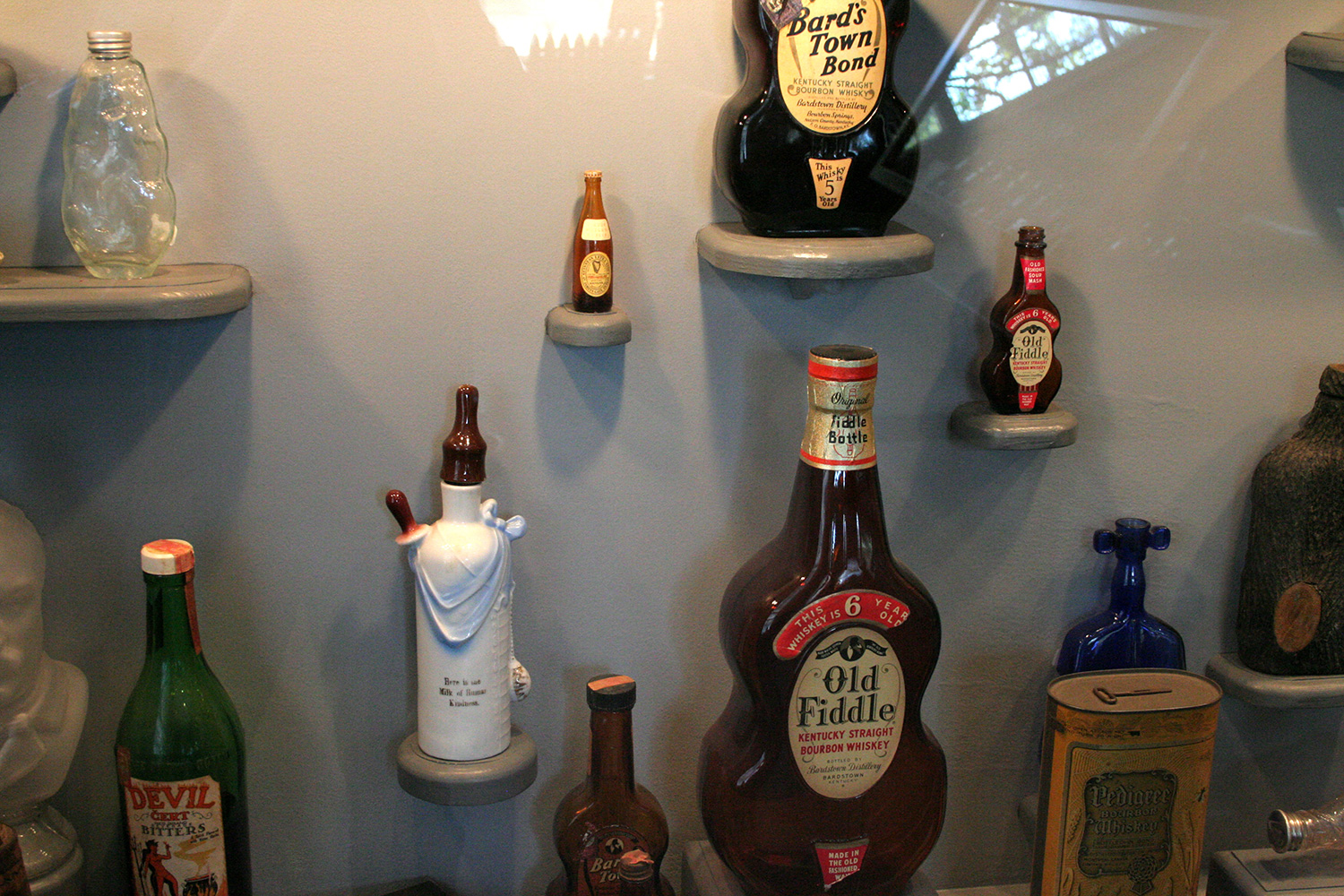Bottled History: The Oscar Getz Museum of Whiskey History
All photos by Keith Allison.
Bardstown, Kentucky’s Spalding Hall has been many things since its construction in 1826. Originally St. Joseph College and Seminary, it later became a hospital treating both Union and Confederate troops during the Civil War, an orphanage, and a prep school. It is, however, its current incarnation that most interests me: the home of the Oscar Getz Museum of Whiskey History.
Getz was a Chicago businessman who, before Prohibition, had been in the whiskey brokering business. With Repeal in 1933, Getz and his brother-in-law, Lester Abelson, decided to get back into the whiskey business under the company name Barton Brands. In 1944, they purchased the Tom Moore Distillery in Bardstown and renamed it The Barton Distillery. They enjoyed moderate success, and Getz became a well-known whiskey historian and lecturer, even starting his own little museum in the Barton Distillery offices, built upon his obsession with collecting old whiskey memorabilia. In 1978, Getz even wrote a book, Whiskey: An American Pictorial History, which is no longer in print but can still be found for relatively cheap in the used book marketplace.
Getz passed away in 1983. A year later, the collection he’d amassed over the previous decades was installed in the newly restored Spalding Hall, and the Oscar Getz Museum of Whiskey History was born. Barton Brands and their distillery was eventually bought by a company called Constellation, who later sold the Barton portfolio to the Sazerac Company, which means what remains of Getz’ old venture has found a new home at Buffalo Trace. The Barton Distillery returned to its old name in 2008 and once again became the Tom Moore Distillery.
Those who visit the Getz Museum -- admission is free, by the way -- and expect a few old bottles in a glass display case and maybe a couple of old advertisements will be surprised by the size of the place. Taking up just about all of the expansive first floor in Spalding Hall, Getz’s collection is a dizzying visual tour through the history of whiskey, relying primarily on artifacts instead of informational plaques. There are hundreds and hundreds of old bottles -- some of them dating back to the the Revolutionary War -- and brands on display, and just as many old signs and ads, as well as other American whiskey ephemera such as a license to make and sell whiskey issued to young Abraham Lincoln and a variety of “prescriptions” for “medicinal” whiskey. There are also old stills and other accoutrements of the whiskey making process, a history of that dark time known as Prohibition, including some bottles cracked by hatchet-wielding Carrie Nation herself.
The sheer number of colorful labels from long defunct and largely forgotten whiskey makers is staggering, and by the time one has wound one’s way through the entirety of the museum, a sort of tipsiness can set in, a whiskey history-induced Stendhal Syndrome. And it’s not just the bottles and labels and ads and saddled up giant Wild Turkey wild turkey. Many of the bottles still have whiskey in them, though exactly how that whiskey would taste today is confined to the imagination since the museum isn’t keen on visitors uncorking the displays and having a wee tipple regardless how how inviting that very old bottle of Old Rip Van Winkle (distilled by Pappy himself) might be.
For those who are more serious, the museum even has an additional semi-private collection of even more paraphernalia and documents. In fact, about the only thing that you won’t find at the museum is a drink of whiskey. Spalding Hall and the Oscar Getz Museum does not have a liquor license. But one needn’t fear. This is Bardstown, after all, and standing at the entrance to the museum you have the Heaven Hill Bourbon Heritage Center and the newly re-opened Willet Distillery a short distance down the road in one direction. Oscar Getz’ own former distillery, Tom Moore has since been renamed yet again and is now the Barton 1792 Distillery, just around the corner from the museum. And Jim Beam just down the road in the other direction -- to say nothing of the nearby Gethsemani Abbey where the quiet monks are famous for their bourbon fudge.
Anyone who has dabbled even casually in the history of American whiskey knows there is much about it that is apocryphal, based more on hearsay and cleverly disguised marketing than on actual facts. The Oscar Getz Museum of Whiskey History is a chance to dispense with the “‘twas on the banks of the old creek nigh these two hundred years ago” nonsense that permeates whiskey history and feast your eyes instead on the real thing. From Old Rip to Old Puritan (which I doubt the old Puritans would have approved of), Mud Lick to Chicken Cock Medicinal Whiskey, and with plenty of novelty decanters shaped like hillbillies or sausages in between, the Getz Museum is an easy must-visit for anyone traveling the Bourbon Trail or interested in digging through the strange, colorful world of American whiskey history.
Oscar Getz Museum of Whiskey History 114 North Fifth Street Bardstown, KY 40004
Email: whiskeymuseum@bardstowncable.net
Hours vary, so it’s best to check with them.



